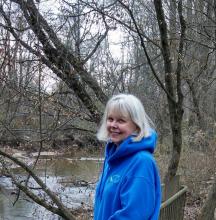Expanding AI for Earth in 2018

Artificial intelligence has indeed pushed the boundaries of our brave new world during 2017. In another solar system far, far away, two new planets have been identified using data from NASA’s Kepler space telescope and Google AI models: Kepler-80 g and Kepler-90i.
Outstanding.
So, where are the next frontiers for 2018 and beyond? Well, for starters, Walmart, Anheuser-Busch, and PepsiCo have all placed orders for Elon Musk’s self-driving electric Semi trucks that will not only turn heads, but hopefully reduce carbon footprints. On the home front, we have peace of mind through intelligent smart doorbells with real-time notifications to our smartphones when someone is at our front door—along with photos and videos if they try to make off with a package).
But with #actonclimatechange trending, what can artificial intelligence accomplish here on Earth?
It’s a question that tech companies such as Microsoft want to answer. In an ambitious undertaking, Microsoft is pledging $50 million over the next five years to expand Microsoft’s AI for Earth program and put artificial intelligence technology in the hands of individuals and organizations around the world who are working to protect our planet.
In the blog post announcing the program, Brad Smith, Microsoft President and Chief Legal Officer, suggests that buildings in the United States are estimated to be responsible for about 40 percent of total energy consumption. Improving efficiency by 15 percent in buildings globally could mean a 6 percent reduction in global energy consumption.
As part of the program, Microsoft will expand seed grants around the world to help organizations create and test new AI applications on agriculture, water, biodiversity, and climate change, including providing access to Microsoft Azure and AI technology. AI projects that show the most promise will receive larger investments to bring them to scale.
One premise is that AI may be the solution to capturing, monitoring, and managing the vast amount of data streaming from sensors on the ground, in the sky, or in space that track the changing status of air, water, land, and wildlife. If you’re interested, apply for an Azure for Research AI for Earth program award.
What can you do if you’re not currently working on an AI project but still want to play a part in Save the Earth? After all, I tried “Alexa, how can we stop climate change?" and the response I got was “Sorry, I’m not sure.” Here’s a smart idea: Plant a tree! Your local Native Plant Society and the Lady Bird Johnson Wildflower Center have great suggestions for native trees (no, not a Bradford Pear), shrubs, and perennials that work in your area, as well as the best times to plant.

